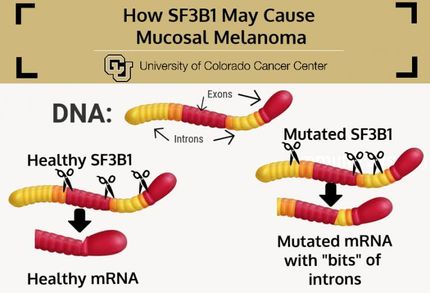Cilengitide Study Provides Long-Term Follow-up Data in Glioblastoma Patients
No treatment-related severe adverse events were observed during long-term treatment in a randomized Phase II study
Merck KGaA announced that long-term follow-up data of a randomized Phase II study of two cilengitide doses in recurrent glioblastoma were presented at the American Society of Clinical oncology (ASCO) Annual Meeting in Chicago. The data showed that treatment of 15 patients with the investigational integrin-inhibitor for more than six months and for up to 4.5 years did not result in any treatment-related severe adverse events (Grade 3/4). In addition, 37% of patients who received the higher dose of cilengitide (2000 mg) were still alive after one year and 22% after two years. The current prognosis of patients with recurrent glioblastoma is poor with median overall survival (OS) between four and seven months and one year survival rates of approximately 20%.
Treatment-related adverse events (AEs) usually occurred within the first six months of receiving cilengitide and the most common (>1 patient) was fatigue (n = 3). The most common non-treatment-related grade 3 / 4 serious AE was convulsion (n = 2).
“The prognosis for patients with recurrent glioblastoma is extremely poor and additional treatment options have been desperately needed for some time,” said Dr. Karen Fink, Baylor University Medical Center, Dallas. “We are excited about the results of this study, in that patients were able to receive cilengitide beyond six months with no treatment-related severe adverse events. Moreover, 10 % of patients were still alive after four years.”
The randomized Phase II study also supports the Phase I study finding of activity with cilengitide monotherapy and indicates that cilengitide efficacy is dose-dependent with OS and long-term survival rates consistently higher for the 2,000 mg treatment group compared to the 500 mg group during more than four years of follow-up: The one-, two-, and four-year survival rates for patients treated with twice-weekly 2,000 mg cilengitide compared to twice-weekly 500 mg cilengitide were 37% vs. 22%, 22% vs. 12%, and 10% vs. 2%, respectively. In the original Phase II study publication, cilengitide efficacy was dose-dependent with the median OS higher with twice weekly 2,000 mg than with twice weekly 500 mg. Median OS was 9.9 months vs. 6.5 months in the high- and low-dose cilengitide groups, respectively.
“These positive long-term data once again support our ongoing Phase III study program of cilengitide in patients with this devastating disease. We believe that cilengitide may play a valuable part in the future care of glioblastoma patients,” said Dr. Wolfgang Wein, Executive Vice President, Oncology, for the Merck Serono division.
Most read news
Other news from the department research and development

Get the life science industry in your inbox
By submitting this form you agree that LUMITOS AG will send you the newsletter(s) selected above by email. Your data will not be passed on to third parties. Your data will be stored and processed in accordance with our data protection regulations. LUMITOS may contact you by email for the purpose of advertising or market and opinion surveys. You can revoke your consent at any time without giving reasons to LUMITOS AG, Ernst-Augustin-Str. 2, 12489 Berlin, Germany or by e-mail at revoke@lumitos.com with effect for the future. In addition, each email contains a link to unsubscribe from the corresponding newsletter.
Most read news
More news from our other portals
Last viewed contents
Category:Antifungals
Category:Quinolone_antibiotics






















































